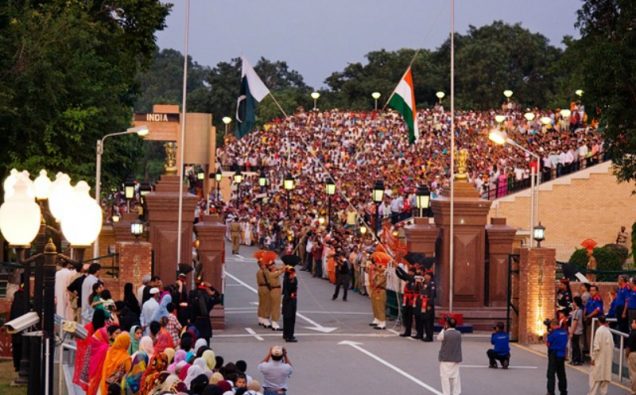
For a while, a breakthrough in ossified Pakistan-India relations seemed well underway. Signs of a rapprochement began with a late February reinstitution of a long-dormant cease-fire agreement along the Line of Control, the de facto border dividing Kashmir.
Last month saw a resumption of meetings of the Indus Water Treaty Commission, which for over 60 years has exemplified the benefits of continuous cooperation between the two countries. Another hopeful note was struck in the mid-March inaugural meeting in Islamabad of a security forum where Pakistani army chief Qamar Javed Bajwa, while continuing to identify Kashmir as an obstacle to normalization with India, also expressed the need for the countries to “bury the past and move forward.”
Meanwhile, Prime Ministers Narendra Modi and Imran Khan have exchanged letters with uncharacteristically cordial language. And then last week, in a move suggesting a likely resumption of suspended Indian-Pakistani trade, the Khan cabinet Economic Coordinating Committee announced Pakistan’s removal this summer of a two-year-old ban on importing Indian cotton and sugar.
Observers have mused over the motives of leadership in both countries in seeking to lower tensions, especially the willingness of the militaries to agree on a cease-fire. Many suggest the heavy economic and strategic costs to both sides, as they face economic stringencies exacerbated by the pandemic. Strategically, they each have two-front security concerns. Greater normalization of ties with Pakistan would allow India’s military to focus solely on the threat to the northwestern border in Aksai Chin, where skirmishes with China took place last year. Pakistan would welcome stability on its eastern border, where conflict could ignite if the Afghan peace process fails.
External pressures may also be at work. China needs regional stability for a return on its investment through the Belt and Road Initiative. It would rest more easily if it knew that Pakistan would not drag it into a conflict with India. The U.S., in encouraging India and Pakistan to normalize relations, hopes to free India to enlist as a stronger counterweight to China’s ambitions in South Asia. As the U.S. plans its military disengagement from Afghanistan, both countries are seen as having a role in assuring that Afghanistan avoids a descent into chaos.
But as has happened often in the turbulent history of Indo-Pakistan relations, developments that seem promising have a way of quickly fizzling out. This may now be occurring. Only a day after announcing its revised trade policy toward India, the cabinet committee and prime minister under domestic pressure reversed themselves. Pakistan’s foreign office followed with a statement that no normalization of relations with India is possible as long as the Modi government refuses to revoke its abrogation of Kashmir’s special status under India’s constitution. For all the recent positive signals, Pakistan’s continuing fixation on the Kashmir issue and India’s lasting belief in Pakistan’s shielding of jihadi terrorists make for the same old thorns in relations.
This article was co-authored by Ghasharib Shoukat and Jack Ryan, research assistants to Marvin G. Weinbaum.
















